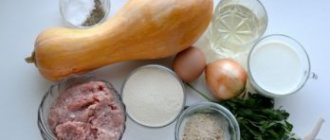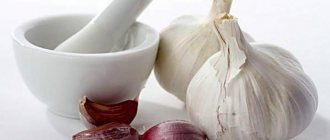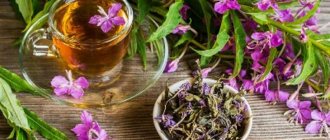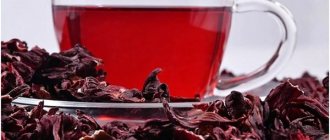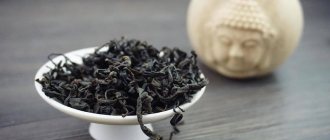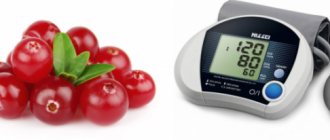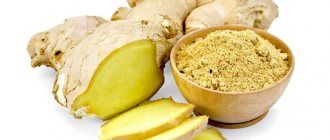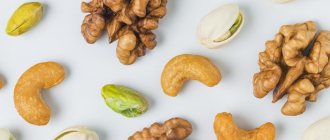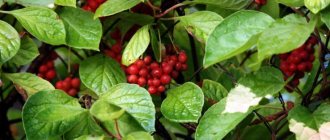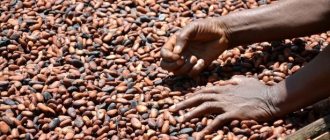Does St. John's wort increase or decrease blood pressure?
Anyone who suffers from vascular and heart disease needs to know that St. John's wort moderately increases blood pressure. This is mainly because the plant contains astringents that increase the tone of the walls of blood vessels.
But in order for St. John's wort preparations to increase blood pressure in a patient with hypertension, the daily dose must exceed 400 ml of infusion or 100 drops of alcohol tincture. The same applies to patients with hypotension: in order for St. John's wort to raise low blood pressure in a hypotensive patient, the daily dose must be very high, which can negatively affect the liver and kidneys.
Let's take a closer look at what St. John's wort is and how to safely use it in the treatment of various diseases.
Proper use of herbal decoctions and infusions helps relieve the symptoms of many diseases
How to properly prepare medicine with St. John's wort: homemade recipes
The following types of plants are used in folk medicine: St. John's wort and St. John's wort. These are herbs 30-70 cm tall with yellow flowers. Habitats: dry meadows and forest clearings. The flowers, leaves and stems of the plant have healing effects.
Collection and procurement rules
To collect grass, places are chosen away from highways, landfills and industrial enterprises, so that the plant contains as few harmful substances as possible. It is better to harvest St. John's wort from mid-June to August, during active flowering.
The workpieces must be dried naturally without the use of heat treatment. Drying time is on average 14-20 days. There are several drying options:
- Collect in bunches, tie and hang with inflorescences down in dark, well-ventilated areas, as sunlight destroys healing substances.
- Spread the herbs on parchment paper in a single layer, turning occasionally.
- Place in small portions into mesh bags, hang and dry in a dark place.
- You can also use dryers at temperatures no higher than 30 degrees.
Preparation of different dosage forms
Medicines from St. John's wort are prepared in different ways:
- Infusion. Take 2 tablespoons of fresh or 1 tablespoon of dried St. John's wort and pour a glass of boiling water. Leave for 2 hours covered, strain.
- The decoction differs from the infusion in the method of preparation and in a higher concentration. You can use both fresh and dry raw materials. Pour 1 tablespoon of chopped herbs into 200 ml of water and boil for 20 minutes in a water bath. Leave for 30 minutes, strain.
- St. John's wort tea. Brew as you would a regular drink. You can add linden, currant branches, rose hips, raspberries, add honey or lemon for taste.
- Tincture. Prepare in ceramic or glass containers. Pour 1 part of dry raw material into 5 parts of vodka or alcohol, leave for 10 days, shaking the container daily. Strain the medicine after the infusion period has expired.
- Concentrated tincture. Fill the jar tightly with flowers and leaves of the plant, fill with vodka and seal tightly. Infuse for 14 days in bright sun until a rich red color is obtained. Then strain and pour into a dark glass bottle.
St. John's wort oil. Chop 25 grams of fresh herbs and pour 200 ml of olive or sunflower oil, leave for 3 weeks, filter.
Storage of funds
Dried St. John's wort can be stored in paper or cotton bags, either whole or crushed, in a dark and non-humid place. Shelf life is no more than 2 years.
The shelf life of ready-made medications depends on the preparation method. St. John's wort tea should be drunk immediately, the decoction should be drunk throughout the day, because with prolonged infusion, toxic substances begin to be released. When making tinctures, you also need to remember this - after the allotted days for aging have expired, you must filter the mixture so that no plant particles remain that can poison the medicine.
Tinctures and oils can be stored for several months, as their solvents are natural preservatives. But it is still better not to prepare medicines in large quantities. Everything made at home should be stored in dark glass containers, in a cool place, protected from direct sunlight and out of reach of children.
Use of St. John's wort in folk medicine
St. John's wort is a medium-sized plant with powerful roots. Several trunks with small lanceolate leaves extend from the roots; small yellowish flowers are located closer to the top. St. John's wort blooms for more than three months - from the last ten days of June until the end of September. For many centuries, healers have been using this herb for many diseases, preparing the flowering stems of the plant.
St. John's wort preparations have a beneficial effect on blood vessels, the heart and the entire body as a whole, thanks to its valuable chemical composition.
Biochemical composition of the plant: flavonoids, nicotinic acid, vitamins A, B, E, P, C, essential oils, many different trace elements, alkaloids, coumarins, tannins, resins; saponins; alkaloids. The substances have a strengthening and calming effect on the human nervous system.
Medicinal properties:
- St. John's wort is an adaptogen plant, and can even compete with ginseng in this regard. Tart and aromatic tea from the plant increases physical strength and strengthens the immune system. It is especially useful to drink St. John's wort tea in autumn and winter, when there is a high risk of catching a cold or flu.
- In the treatment of internal organs, St. John's wort is used to relieve muscle spasms in diseases of the kidneys and bladder, as a choleretic agent for gallbladder dyskinesia.
Preparations from this plant that are highly specialized for the treatment of hypertension do not work
- St. John's wort is effective in medicinal teas for gout, urolithiasis, gastritis and intestinal atony.
- St. John's wort can also help treat depression and chronic fatigue syndrome.
- Due to its astringent and antiseptic properties, infusions of St. John's wort and other herbs are used in dentistry to treat stomatitis and gingivitis.
St. John's wort is a poisonous plant, so when starting treatment with St. John's wort, you need to carefully study the contraindications and adhere to the exact dosage.
There is probably no such disease that they would not try to treat with St. John's wort. People say: “Just as you can’t bake bread without flour, you can’t cure a person without St. John’s wort.” This plant has many names - St. John's wort, St. John's wort, St. John's wort, St. John's wort, St. John's wort, St. John's wort, St. John's wort, St. John's wort, field pharmacy.
The generic name “Nurericum” is derived from two Greek words: “huro” - under and “ereike” - heather; it turns out “growing under heather”, or “resembling heather”. The name “perforatum” - perforated or perforated - the plant received because of the small transparent containers scattered throughout the leaf blade.
The most famous name of the herb “St. John’s wort” comes, according to some assumptions, from the Kazakh “dzherabai”, meaning “healer of wounds”, according to others - due to the ability of St. John’s wort to cause disease in sheep. Moreover, not all animals fed with St. John's wort get sick, but only white or variegated ones, and only on a bright sunny day. Swellings form on the head of such animals, growing into ulcers, and severe itching appears. But, as soon as a sick sheep moves into the shade, after a while all painful phenomena disappear. It turns out that St. John's wort contains substances (hypericin and other condensed anthracene-derivative glycosides) that increase skin sensitivity to ultraviolet rays.
In the old days, St. John's wort was considered a magical plant. In rural areas, when stuffing children's mattresses, they always added St. John's wort to the straw so that the smell of this plant would protect the child from fright in his sleep. St. John's wort was a favorite remedy of Paracelsus, used against spirits hostile to man. He wrote: “The veins on its leaves are signatures. If they are pierced, this means that the plant drives away all the ghosts around the person. ... Nurericum (St. John's wort) is an almost universal medicine.” There is also a mention of St. John's wort in Ayurveda: “Its nature is hot and dry in the second degree. St. John's wort has a cleansing, drying and resolving effect.” St. John's wort was considered a medicinal plant in both Ancient Greece and Rome. Hippocrates, Dioscorides and Pliny the Elder wrote about him. Avicenna recommended “drinking it for forty days in a row to cure inflammation of the sciatic nerve; and take the seed internally to stop the fever.” In Kievan Rus, St. John's wort was considered a herb for 99 diseases. By order of Tsar Michael, St. John's wort was collected in Siberia, dried, ground into flour and sent to Moscow “by the pound for every year.”
St. John's wort is a perennial herbaceous plant of the St. John's wort family, 30–100 cm high. The stems are smooth, round, with two lateral ribs, branched at the top. The rhizome of St. John's wort is thin, highly branched. Leaves with numerous translucent light and black glands. On examination they appear to be punctured. St. John's wort blooms from June to August. The flowers are collected in an inflorescence. The petals are bright yellow. The fruit of St. John's wort is a three-lobed capsule. The seeds are small, oblong, brown. St. John's wort is distributed throughout almost the entire European part of Russia, the Caucasus, Western and Eastern Siberia, as well as in the mountains of Central Asia. It grows in dry meadows, hills, clearings and forest edges, in sparse forests and among bushes. It is found as a weed near roads and along the edges of fields.
The name “St. John's wort” is explained by the small black dots that cover the flowers and leaves. We are not talking about holes, but about small glands filled with a red dye - hypericin. When collected independently, this is a sure sign of identification of St. John's wort: if you rub a flower or bud between your thumb and forefinger, they will turn dark red. Hypericin is especially necessary for the treatment of depression, stress, and nervous breakdowns; it does not have any side effects on the central nervous system.
St. John's wort herb is harvested in the flowering phase of the plant (before the appearance of unripe fruits), cutting off the leafy tops without the rough bases of the stems.
The main active ingredients of the herb St. John's wort are condensed anthracene derivatives - hypericin and pseudohypericin. Their number is about 0.5%. Hypericin and pseudohypericin are accompanied by resinous substances, the content of which reaches up to 17%. St. John's wort herb contains flavonoid glycosides of the flavonol group: rutin, quercitrin, hyperoside, myricetin, leukoanthocyanidins and anthocyanins (5–6%). The hyperoside content in the grass reaches 1.0–1.2%. Along with anthracene and flavonol derivatives, St. John's wort contains tannins (up to 10%), essential oil (0.2–0.3%), saponins, ascorbic acid, carotene (up to 55 mg/100 g).
St. John's wort preparations have astringent, anti-inflammatory, antiseptic and tissue regeneration stimulating properties. Medicinal preparations from St. John's wort have a beneficial effect on the functional state of the central and autonomic nervous system. Bioflavonoids contained in St. John's wort bind to benzodiazepine receptors and have a sedative effect. The drugs improve mood, increase mental and physical performance, and normalize sleep. The antidepressant effect is due to the ability to inhibit the reuptake of serotonin, norepinephrine and dopamine; St. John's wort preparations do not have contraindications and side effects, which become constant companions of chemical antidepressants.
Infusions, tinctures and extracts are obtained from the herb St. John's wort. The drugs Novoimanin, Negrustin, St. John's wort, Gelarium Hypericum, Deprim, Deprim forte are registered on the market. St. John's wort herb is included in the herbal mixtures “Brusniver” and “Brusniver-T”, “Arfazetin”, “Mirfazetin”, etc.
St. John's wort infusion (10 g per 200 ml) is used as an astringent, disinfectant and anti-inflammatory agent orally for diseases of the gastrointestinal tract, acute and chronic colitis of non-bacterial origin. Take 100 ml orally 3 times a day before meals for 1–2 months.
St. John's wort tincture and the drug Novoimanin have an antimicrobial and anti-inflammatory effect. Inhibits the growth of predominantly gram-positive microorganisms, such as Streptococcus pyogenes and Streptococcus agalactiae, penicillin-resistant Staphylococcus aureus and methicillin-resistant Staphylococcus aureus. Indicated for abscesses, phlegmon, infected wounds, burns (I–III degree), trophic ulcers, pyoderma, mastitis, rhinitis, pharyngitis, sinusitis.
St. John's wort tincture in 40% alcohol (1:5) is used as an astringent and anti-inflammatory agent in dentistry (40–50 drops 3–4 times a day) and for rinsing (30–40 drops in half a glass of water).
Novoimanin is used externally, in the form of a solution for wet dressings, rinsing cavities, electrophoresis, inhalations and drops (external auditory and nasal canal); Before use, the alcohol solution is diluted 1: 5–10–25–100 with sterile distilled water, a sterile 10% dextrose solution or a 0.25% procaine solution. Solutions obtained by diluting a 1% alcohol solution are suitable for use during the day. During the treatment period, care must be taken when driving vehicles and engaging in potentially hazardous activities that require increased concentration and speed of psychomotor reactions.
Medicines based on St. John's wort concentrate are indicated for the treatment of mild and moderate depression. They have antidepressant, anxiolytic and sedative effects. Negrustin is taken 1 capsule 1-2 times a day or 1 ml of oral solution 3 times a day (undiluted or with a small amount of water with meals) for 6-8 weeks. St. John's wort is prescribed 1-2 tablets 3 times a day for at least 3 weeks, it is possible to increase the duration of treatment to 3 months (no more). Gelarium Hypericum is used 1 tablet 3 times a day for at least 4 weeks, Deprim - 1 tablet 3 times a day for 4-6 weeks, Deprim Forte - 1 capsule 1-2 times a day for 4-6 weeks
For all its popularity, St. John's wort is far from harmless. It should not be used for a long time in case of arterial hypertension and severe depression. It is contraindicated in childhood (under 12 years), during pregnancy and lactation. Even in healthy people, drinking large amounts of strongly brewed St. John's wort tea can cause symptoms of acute gastritis (nausea, pain in the epigastric region, dry oral mucosa, diarrhea or constipation), and in those suffering from hyperacid gastritis or gastric ulcer, severe overdose may occur. spasms and pain in the intestines. Amino acids, trictophan and tyrosine, amphetamines, monoamine oxidase inhibitors, antidepressants should not be used simultaneously with St. John's wort (the interval between doses should be at least 14 days). When used together with fluoxetine, paroxetine, sertraline, fluvoxamine or citalopram, St. John's wort aggravates hemolytic reactions and the course of “serotonin syndrome” (increased sweating, tremor, dizziness, nausea, vomiting, headache, epigastric pain, restlessness, anxiety, state of confusion, confusion , anxiety and irritability).
On the part of the hematopoietic organs, an overdose can cause iron deficiency anemia. St. John's wort increases the skin's sensitivity to ultraviolet rays, so after drinking tea or herbal infusion, you must refrain from sunbathing and avoid being in the sun. If this rule is violated, St. John's wort can cause sunburn of the skin, eczema, skin pigmentation and even severe dermatitis. They are especially difficult for blondes and people with delicate skin that does not take well to tanning. In case of chronic intoxication, UV radiation should be avoided for 1–2 weeks.
St. John's wort preparations can enhance the photosensitizing effect of other drugs: tetracyclines, sulfonamides, thiazide diuretics, quinolones, piroxicam, etc. They prolong sleep caused by drugs for general anesthesia and narcotic analgesics, but shorten sleep caused by barbiturates. St. John's wort reduces the hypotensive effect of reserpine and reduces the concentration of cyclosporine in the blood. St. John's wort reduces the concentration of indinavir in the blood, increases the rate of metabolism of theophylline, reducing the concentration of digoxin in the blood, and reduces its effectiveness. When used simultaneously with ethinyl estradiol and desogestrel, the risk of breakthrough bleeding increases.
During treatment with St. John's wort, it is necessary to refrain from drinking ethanol-containing drinks and avoid UV radiation (including solarium, UV lamps, prolonged exposure to sunlight) for 1–2 weeks.
Beer, coffee, wine, chocolate, smoked or pickled foods, and yoghurt do not go well with St. John's wort.
St. John's wort is widely used in homeopathy. The whole flowering plant is used to prepare the homeopathic remedy Hypericum. It is given to alleviate the condition after a concussion, depression of various natures and nerve pain after injuries.
In folk medicine, as in official medicine, St. John's wort is used primarily for the treatment of wounds and pain, in the treatment of diseases of the lungs, stomach, intestines and gall bladder, for diarrhea and nervous disorders. They use tea, oil, and alcohol extract (tincture) in equal measure, which is used to disinfect wounds.
The popular name “Ivan's grass” is associated with the fact that St. John's wort begins to bloom on Midsummer's Day, and the name “Ivan's Blood” is associated with the legend of the death of John the Baptist. When Herod killed John the Baptist, several drops of blood fell to the ground and grass grew in that place, absorbing John’s blood. This herb is St. John's wort. The leaves and petals of St. John's wort actually contain a bright red pigment that looks like blood.
Information about the authors: Samylina Irina Aleksandrovna – Doctor of Pharmaceutical Sciences, Professor, Corresponding Member of the Russian Academy of Medical Sciences, Director of the Research Institute of Pharmacy; Head of the Department of Pharmacognosy, First Moscow State Medical University named after. THEM. Sechenov. Tel.; Sorokina Alla Anatolyevna – Doctor of Pharmaceutical Sciences, Professor of the Department of Pharmacognosy of the First Moscow State Medical University named after. THEM. Sechenov. Tel.; Pyatigorskaya Natalya Valerievna – Candidate of Pharmaceutical Sciences, Associate Professor, Deputy Director of the Research Institute of Pharmacy for Scientific Work of the First Moscow State Medical University named after. THEM. Sechenov. Tel.
Contraindications to the use of St. John's wort
Medicines and infusions based on St. John's wort are prohibited for people to take in the following cases:
- high blood pressure;
- photosensitivity of the skin, working in the sun;
- erectile dysfunction;
- liver enlargement;
- previous organ transplantation;
- taking contraceptive medications (reduces their effectiveness);
- pregnancy at any stage, breastfeeding;
- individual intolerance to plant drugs.
The main danger of exposure to St. John's wort when consumed in large doses or concentrations is that the blood pressure increases abruptly
How to properly use medicine with St. John's wort for hypotension?
Headaches, dizziness, nausea, and spots flashing before the eyes can be signs of hypotension. But don’t rush to self-medicate. It is necessary to consult a doctor and undergo examinations, because taking folk remedies from St. John's wort has a number of contraindications: allergic reactions to the plant, hypertension, hepatomegaly (enlarged liver), impaired potency, constipation, loss of appetite. You should also not take these drugs during pregnancy or breastfeeding. The doctor will clarify the need to take folk remedies, the dose and duration.
Directions for use and doses
The dose of the drug depends on the method of preparation. Drink half a glass of St. John's wort decoction 3 times a day. Hypotensive patients should take the tincture 40-50 drops 3 times a day. If it turns out to be concentrated, the dose must be reduced by 2 times. When for some reason taking alcohol-based medications is contraindicated, they can be replaced with infusions: 50 ml 3 times a day. It is important to monitor your blood pressure levels daily.
An excellent option for using St. John's wort is to take the oil from this plant. It should be drunk 1 teaspoon 2 times a day an hour before meals or 2 hours after. The product can also be added to salads or cereals.
You can take several cups of tea a day, the main rule is to brew it fresh each time. If you add a couple of sprigs of mint or lemon balm to the teapot, it will be useful to drink the drink in the evening to improve sleep.
Course duration and frequency of administration
St. John's wort does not act instantly against low blood pressure, but has a cumulative effect. The duration of the course depends on the severity of hypotension and lasts from 2 weeks to a month. If the indicator has returned to normal, you can take a break or switch to preventative tea intake several times a week.
During treatment, it is important to monitor your well-being. If side effects occur (allergic reactions, headaches, digestive disorders, decreased potency), you should stop taking it immediately.

